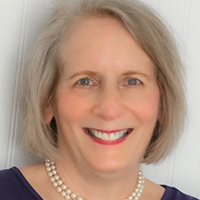Tax Strategies Under Obama Tax Plan

Tax Strategies Under Obama Tax Plan
Everyone is aware that President-elect Barack Obama has stated his case clearly that there will be a major tax bill for 2009. As our experience shows, a first-term tax law will probably not see passage by both houses until as late as July; however, it is more than likely that many of the new tax provisions will be retroactive to Jan. 1.
How will the so-called “middle class” be affected? Generally, if you are earning less than $250,000, it is expected that a tax cut could be coming your way.
This could come about with one or more of the following key provisions: a $500 per-wage earner tax credit, based on the first $8,100 in payroll wages; a refundable mortgage-interest credit; an enhanced childcare credit; a new education credit; and the elimination of taxes for seniors with income less than $50,000 per year.
What about the so-called high-income taxpayers? Unfortunately, if you happen to be in one of the two highest tax brackets – 33 percent and 35 percent – you can expect those brackets to be increased to 35 percent and 39 percent, respectively.
These were the old rates before the Bush tax cuts. Although rumors persist that these proposals for rate increases might be postponed for a year or so while the recession continues, it seems clear that they will, nevertheless, become a reality.
Also, if you earn more than $250,000, you will probably see further limitations on your itemized deductions and exemptions.
Looking ahead at capital gains and the dividend tax rates – the tax rates that need special attention during times of economic crisis.
Again, it looks like bad news for higher earners. For those earning more than $200,000 and families earning more than $250,000, the attractive 15 percent ceiling tax rate for capital gains and dividends is expected to disappear. The plan is to raise their top rate to 20 percent, not an insignificant increase.
Planning tips
Q: Should I sell stock or real estate investments that are at a profit in spite of the down market before the law changes in 2009?
A: Don’t be hasty to let the “tax dog” wag the tail. In most cases, your primary focus should be on the real merits of your investment. Don’t let an extra 5 percent tax hit stand in the way of smart economics. Besides, there is still the chance that the new administration will back off temporarily and postpone the tax increase.
Q: What should I do if the securities in my portfolio are down in value?
A: Welcome to the investor’s club of 2008. If the value of your securities has dropped considerably below your cost basis, you may want to consider selling some positions to lock in the tax benefits. This is one particular year that the popular technique known as “harvesting” tax losses could make good sense.
Any unused capital losses that are realized could be carried forward to capital gains that will be earned in future years.
One word of caution. With the market down and everybody searching for the bottom, many are trying to lock in portfolio losses for future tax benefits. Many turn around and buyback for their portfolio the same positions that were sold, in line with their planning strategy.
It looks easy – like putting money in the bank. However, the IRS will be on the lookout for these prohibited maneuvers known as “wash sales.” In general, the strategy won’t work if you buy back the same, or “substantially identical,” security within 30 days.
Retirement under Obama
For retirees, it’s mostly good news. The early briefings indicate that Mr. Obama is supporting relaxation of the current penalties for early withdrawals from retirement plans, and a temporary suspension of the required minimum distributions, the RMDs.
Attention estate planners, an important mystery may soon be resolved. Estate planning professionals have long been in a quandary trying to lay out a comprehensive long-term strategy to eliminate unnecessary estate taxes. One reason: No one could predict how much the federal estate-tax exemption would be at the time of the estate planner’s death.
Although the lifetime exemption was scheduled to increase in staggered fashion over the past several years, the current law calls for it to peak at $3.5 million in 2009. But, to put it bluntly, even the top experts have been clueless as to how much an estate will have to be worth to be subject to the federal estate tax after 2009 comes to an end.
Well, it seems that the president-elect has been the one to step up to the plate to address this nagging question.
First, he has proposed pegging the top estate tax rate at 45 percent. But, more important, his plan calls for keeping the $3.5 million exemption in place for individuals while, interestingly, providing for a $7 million allowance for married couples.
This, according to the Obama briefing, would effectively eliminate the death tax for 99.7 percent of estates – a major estate planning breakthrough for many Americans.
However, before you run off and make any radical changes with your estate strategy, wait to see more details on the Obama plan, especially how it will work for married couples.
Thomas J. Stemmy, CPA, CVA, EA, an award winning author, is a resident of Annapolis. A partner with Stemmy, Tidler & Morris, a CPA firm in Greenbelt, Tom is the author of “Top Tax Saving Ideas for Today’s Small Business.”
We hope you found this article about “Tax Strategies Under Obama Tax Plan” helpful. If you have questions or need expert tax or family office advice that’s refreshingly objective (we never sell investments), please contact us or visit our Family office page or our website at www.GROCO.com. Unfortunately, we no longer give advice to other tax professionals gratis.
To receive our free newsletter, contact us here.
Subscribe our YouTube Channel for more updates.

Alan Olsen, is the Host of the American Dreams Show and the Managing Partner of GROCO.com. GROCO is a premier family office and tax advisory firm located in the San Francisco Bay area serving clients all over the world.
Alan L. Olsen, CPA, Wikipedia Bio

GROCO.com is a proud sponsor of The American Dreams Show.

The American Dreams show was the brainchild of Alan Olsen, CPA, MBA. It was originally created to fill a specific need; often inexperienced entrepreneurs lacked basic information about raising capital and how to successfully start a business.
Alan sincerely wanted to respond to the many requests from aspiring entrepreneurs asking for the information and introductions they needed. But he had to find a way to help in which his venture capital clients and friends would not mind.
The American Dreams show became the solution, first as a radio show and now with YouTube videos as well. Always respectful of interview guest’s time, he’s able to give access to individuals information and inspiration previously inaccessible to the first-time entrepreneurs who need it most.
They can listen to venture capitalists and successful business people explain first-hand, how they got to where they are, how to start a company, how to overcome challenges, how they see the future evolving, opportunities, work-life balance and so much more..
American Dreams discusses many topics from some of the world’s most successful individuals about their secrets to life’s success. Topics from guest have included:
Creating purpose in life / Building a foundation for their life / Solving problems / Finding fulfillment through philanthropy and service / Becoming self-reliant / Enhancing effective leadership / Balancing family and work…

MyPaths.com (Also sponsored by GROCO) provides free access to content and world-class entrepreneurs, influencers and thought leaders’ personal success stories. To help you find your path in life to true, sustainable success & happiness. It’s mission statement:
In an increasingly complex and difficult world, we hope to help you find your personal path in life and build a strong foundation by learning how others found success and happiness. True and sustainable success and happiness are different for each one of us but possible, often despite significant challenges.
Our mission at MyPaths.com is to provide resources and firsthand accounts of how others found their paths in life, so you can do the same.
Pushing the Boundaries of Science and Technology since 1973: Terrific Insight from Dr. Lee Hood
See Dr. Lee Hood‘s recent interview with Alan Olsen: about pushing the boundaries of science and technology: https://youtu.be/60DDZ0MJ8QE Dr. Lee M. Hood is best known for his development of technologies which have enabled the advancement of predictive, preventative medicine. Dr Hood’s journey began at a young age, when he was an assistant professor of molecular immunology…
Ali Nasser: Building A Successful E-commerce Business From The Ground Up
See Ali Nasser’s interview with Alan Olsen: about Building A Successful E-commerce Business From The Ground Up on YouTube: https://www.youtube.com/watch?v=MJyKKqTCaBM Ali Nasser is a serial entrepreneur who has been helping business owners for nearly twenty years. He understands the legacy dilemma and financial freedom that many business owners face when it comes to their life…
The Master of Retention with Lynn Thomas, CEO of Thomas Consulting Inc
Alan Olsen: discusses how to be a master of retention with Lynn Thomas, CEO of Thomas Consulting Inc. Transcript (software generated) Alan Olsen Welcome to American Dreams. I’m here today with Lynn Thomas. Lynn, welcome to today’s show. Lynn Thomas Thank you for having me on. I’m delighted to be here. Alan Olsen So Lynn,…
The Extinction of Chronic Disease with Dr. Lee Hood, Co-founder of Institute for Systems Biology
Alan Olsen discusses the extinction of chronic disease with Dr. Lee Hood, Co-founder of Institute for Systems Biology (ISB). Transcript (software generated): Dr. Lee Hood If we succeed, the largest transformation of healthcare would be essentially if we could eliminate all chronic diseases. So we spend 86% of our $4 trillion a year in health care…




